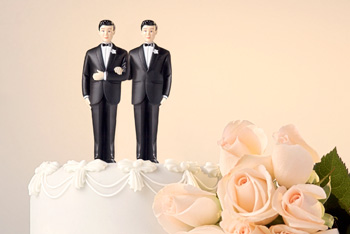Aug. 21, 2013 – Marriage equality is at the forefront of the rights being sought by gay men and women. The U.S. Supreme Court’s recent decision in United States v. Windsor provided an important victory towards the recognition of same-sex marriage.
The decision, however, has raised more questions than answers. Many people within Wisconsin have misconceptions of what the Court actually did by striking down Section Three of the Defense of Marriage Act (DOMA).
Some people believe that the Windsor decision opened the door for same-sex marriage in Wisconsin. It did not. Others believe that Windsor will have no impact on gay and lesbian couples in Wisconsin. It does.
Wisconsin attorneys should understand the application of the Windsor decision on the real life situations of their gay and lesbian clients. This article highlights the issues that attorneys should consider when advising gay and lesbian couples.
320
240
http://www.youtube.com/watch?v=2LByl4svMbE
In this video, Madison attorney Christopher Krimmer explains how the U.S. Supreme Court’s recent decision in United States v. Windsor impacts gay and lesbian couples in states that don’t recognize same-sex marriage.
Place of Residence vs. Place of Celebration
A gay and lesbian couple cannot marry in Wisconsin. In 2006, the state passed by referendum, Article XIII, Section 13 of the Wisconsin Constitution, which prohibits the granting and recognition of same-sex marriage, commonly known as the “Marriage Amendment.” The Windsor decision did not strike down this amendment.
Place of Celebration vs. Place of Residence Rule
Federal agencies that follow the place of celebration rule:
- U.S. Citizenship and Immigration Services
- Department of Defense
- Office of Personnel and Management (federal civilian employees)
Federal agencies that follow the place of residence rule:
- Internal Revenue Service
- Department of Veteran Affairs
- Social Security Administration
Gay and lesbian couples are still limited to the 43 state rights that they can obtain by registering as domestic partners with the state registry.
Although the hundreds of state benefits and privileges associated with marriage will remain unavailable to same-sex couples in Wisconsin, the Windsor decision does open the door for same-sex couples to receive some federal benefits associated with marriage. That is, a Wisconsin same-sex couple who marry in a state or country that grants same-sex marriage will immediately receive some federal spousal benefits even though they reside in Wisconsin.
There are over 1,100 federal benefits and privileges available to married couples. Many of these benefits stem from various government agencies, programs, or U.S. Codes. Most agencies or programs will determine the eligibility of the program’s spousal benefits on whether the marriage is valid at the place the spouses reside (the “place of residence” rule) or whether the marriage was valid in the jurisdiction the couple married (the “place of celebration” rule). Therefore, this distinction is significant.
For example, a same-sex couple who reside in Wisconsin but marry in Iowa, a state that grants same-sex marriage, would not be able to receive any of the federal tax benefits associated with marriage. The IRS recognizes only marriages that are valid in the state of which the couple reside (i.e. “place of residence”).
However, if one of the spouses were in active military service, the military member’s spouse would receive all of the federal spousal benefits given to military spouses. This is true because the Department of Defense awards spousal benefits if the marriage is valid in the jurisdiction of which the marriage took place (i.e. “place of celebration”).
To add complexity to the example, once the military spouse retires, she would receive her veteran benefits, but her wife would not receive any spousal veteran benefits because the Department of Veteran Affairs follows the “place of residence” rule.
 An attorney advising married gay and lesbian couples will need to navigate through all of these regulations and codes to determine whether a specific federal benefit is based on the “place of residence” or “place of celebration” rule for marriage.
An attorney advising married gay and lesbian couples will need to navigate through all of these regulations and codes to determine whether a specific federal benefit is based on the “place of residence” or “place of celebration” rule for marriage.
The Future of the Law
The task of navigating these regulations and codes may become much easier for attorneys. President Barack Obama has commenced a task force to specifically address this issue of having two classifications regarding marriage.
In the past, the issue of whether the marriage was valid in the jurisdiction in which it was celebrated versus where the couple reside was of minor significance, since both jurisdictions generally recognized most heterosexual marriages as valid.
This is not true for same-sex marriage. Currently, 13 states and the District of Columbia grant same-sex marriage. This means that for the other 37 states, including Wisconsin, determining what federal benefits are available to them requires research and expertise in the applicable areas of the law.
President Obama instructed the task force to “swiftly and smoothly” implement the Windsor decision among the various government agencies and programs. This may be “code words” for the various agencies to implement more uniformity among them with the adoption of a “place of celebration” standard for as many federal rights as possible.
States That Recognize Same-Sex Marriage
The District of Columbia and the following states grant same-sex marriages:
- California
- Connecticut
- Delaware
- Iowa
- Maine
- Massachusetts
- Maryland
- Minnesota
- New Hampshire
- New York
- Rhode Island
- Vermont
- Washington
Yet, even if true, the task force and the Executive branch is limited in what it can do. Many of the federal benefits and privileges are tied to U.S. Codes, which would require an act of Congress to provide more uniformity.
The U.S. Supreme Court could have provided more clarity by deciding the companion same-sex marriage case, Perry v. Hollingsworth. In Perry, the Court was asked whether gay men and women were being denied the fundamental right of marriage under the U.S. Constitution.
If so, then the entire nation would have been required to grant same-sex marriage. Instead, the Court dismissed the case for lack of standing. David Boise and Theodore Olsen, the two attorneys representing the gay couples in the Perry decision, predict that the Court will revisit the issue of same-sex marriage within the next five years, and when given the opportunity to decide the issue on its merits, will deem that same-sex couples must have equal access to the right of marriage.
Justice Scalia seems to agree with such a prediction in his dissent in the Windsor decision, “It is my opinion, however, the view that this Court will take of state prohibition of same-sex marriage is indicated beyond mistaking by today’s opinion. As I have said the real rationale of today’s opinion, whatever disappearing trail of legalistic argle-bargle one chooses to follow, is that DOMA is motivated by ‘bare…desire to harm’ couples in same-sex marriages. How easy it is, indeed how inevitable, to reach the same conclusion with regard to state laws denying same-sex couples marital status.”
Given the time and challenges in repealing the Wisconsin Marriage Amendment, it very well could be another Supreme Court decision within the next few years that will ultimately provide Wisconsin gay and lesbian couples the right to marry within the state.
A Word of Caution: Marriage Evasion Statute
It would seem self-evident that gay and lesbian couples should rush off to one of the 13 states or the District of Columbia to marry. The marriage would provide them with at least some federal benefits immediately and likely many more federal benefits in the near future.
 Christopher Krimmer (U.W. 1997), is a partner at Balisle & Roberson S.C. in Madison, practicing exclusively in the area of family law. He’s also an adjunct law professor at Marquette Law School. Reach him by phone at (608) 259-8702, by email.
Christopher Krimmer (U.W. 1997), is a partner at Balisle & Roberson S.C. in Madison, practicing exclusively in the area of family law. He’s also an adjunct law professor at Marquette Law School. Reach him by phone at (608) 259-8702, by email.
However, the attorney must advise the couple that by doing so they could potentially be running afoul of Wisconsin's "marriage evasion statute" which makes it a crime for a resident couple to contract a marriage in another jurisdiction that is void in our state.
The penalty is severe with up to nine months imprisonment and/or a $10,000 fine. Despite dozens, and possibly hundreds, of gay and lesbian couples in Wisconsin marrying in other jurisdictions, there has not been a single prosecution of a same-sex couple who married in another jurisdiction.
Nonetheless, it is still the law of the state and an attorney must make certain the gay or lesbian couple who wish to marry are aware of the potential of criminal prosecution even if it seems a remote possibility.
Upcoming Webcasts
For more information on the DOMA decision and its impact on Wisconsin gay and lesbian couples, register for an upcoming webcast on “Same-Sex Marriage in Wisconsin: Past, Present and Future,” scheduled for Aug. 29, Sept. 11, and Sept. 23.
